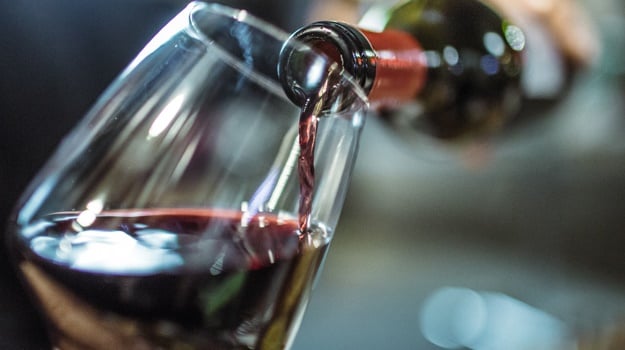
- Vinpro estimates that the alcohol ban has resulted in a loss of more than R8 billion in direct sales and threatens 27 000 jobs.
- The wine producers body wants the High Court to give power to the provincial government to decide on the ban.
- President Cyril Ramaphosa explained that the ban was because of the impact that alcohol has on the congestion in SA's hospitals.
The wine producers body Vinpro is set to challenge the current lockdown ban on alcohol sales in court.
Government said its third blanket ban on the sale of alcohol, announced at the end of December, was implemented to keep hospital beds free of liquor-related trauma cases while SA goes through the second wave of Coronavirus infections. President Cyril Ramaphosa explained that, when government took the decision, it was because of the impact that alcohol has on the congestion in SA's hospitals.
Vinpro intends to ask the Western Cape High Court on 5 February for urgent interim relief. It wants the premier of the Western Cape to be gien the power to adopt deviations on the lockdown regulations in order to enable the off- and on-consumption sale of liquor in the province. Similar relief will ultimately be sought in other provinces too.
The SA wine industry supports the livelihoods of 269 000 employees and generates R55 billion in revenue for the country, according to Vinpro.
It advocates for a "more flexible, nimble approach, based on credible empirical data", where the provincial executive should be empowered to deal with the retail sale of liquor for the rest of the pandemic. Vinpro argues that provincial authorities are normally responsible for regulating the sale of liquor and in charge of healthcare and provincial hospitals. They are, therefore, better equipped to manage the balance between lives and livelihoods.
"While we share government's concern over the devastating effect of this pandemic and support meaningful measures to flatten the curve, we do not support the continued outright ban on the sale of wine while alternative interventions are available to mitigate risks," Vinpro said in a statement on Wednesday.
It represents 2 575 SA wine producers, sellers and industry stakeholders. Many of Vinpro's members also sell and distribute their wines to licenced restaurants and hotels. Many operate licenced restaurants on their own farms where wine-tastings are offered to consumers.
In the view of Vinpro, the numbers of new Covid-19 infections, active cases and hospital admissions are dropping, making the liquor ban no longer justified in the Western Cape.
Vinpro estimates that the total of 19 weeks of an alcohol ban since March 2020 has resulted in a loss of more than R8 billion in direct sales and the possible closure of cellars and producers and threatens 27 000 jobs. Furthermore, with the 2021 harvest commencing this week, the industry now has more than 640 million litres of stock of which 300 million is uncontracted. This poses a material risk of insufficient processing and storage capacity for the new harvest and threatens the sustainability of the wine industry.
"Despite continuous engagement with government to curb the spread of the virus through the implementation of a risk-adjusted approach to re-opening the economy and addressing the social ills of alcohol abuse through a social compact, our proposals were not taken into account when the third ban was introduced on 28 December 2020," states Vinpro.
"Government has also not been transparent with us on justifying the continued ban, nor did they give any explanation or clarity on the timeline for a review of this ban. This makes planning and contingency plans impossible."
Vinpro is not the only one to challenge to the liquor ban. South African Breweries (SAB) announced recently that it intends to bring an urgent application, also in the Western Cape High Court, to challenge the ban. Government has yet to indicate whether it will oppose the application.
SAB has already cancelled capital expenditure in SA since alcohol sales bans were introduced in 2020 to a total of R5 billion. Both SAB and Distell have already announced hundreds of job cuts due to the impact of the ban.
According to SAB, the alcohol industry continues to support over one million livelihoods throughout its value chain, across farming, retail, manufacturing, logistics and many SMMEs whose incomes are at stake due to the suspension of alcohol trading. The three alcohol bans instituted by the government since the start of the coronavirus pandemic have already cost the fiscus about R4.5 billion in lost income from SA Breweries alone, the beer giant claimed in court documents.